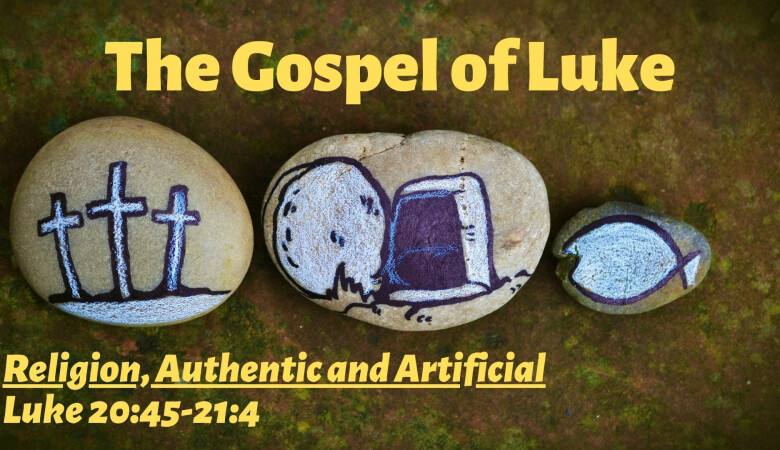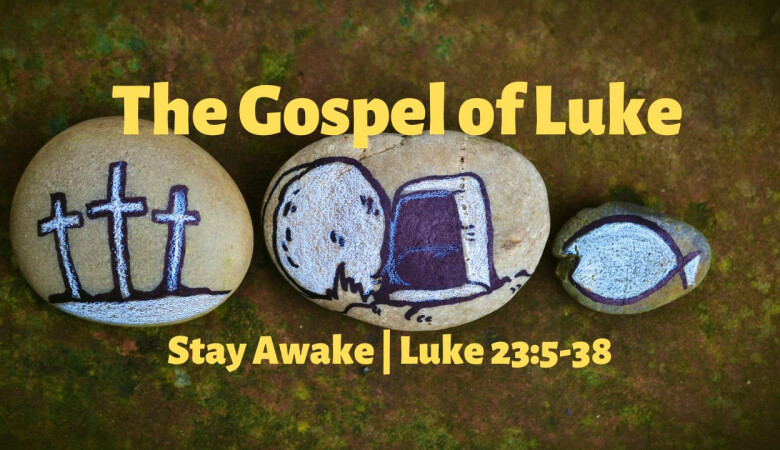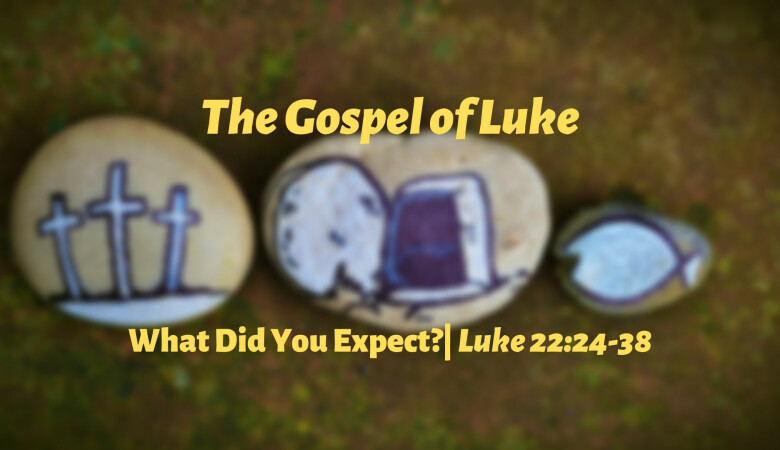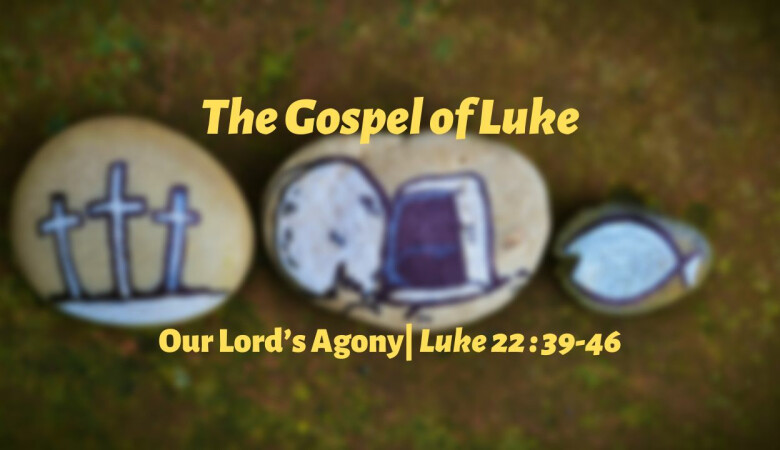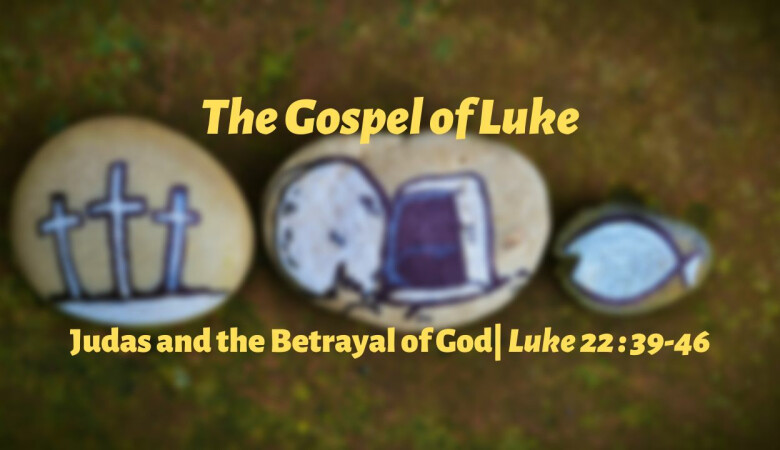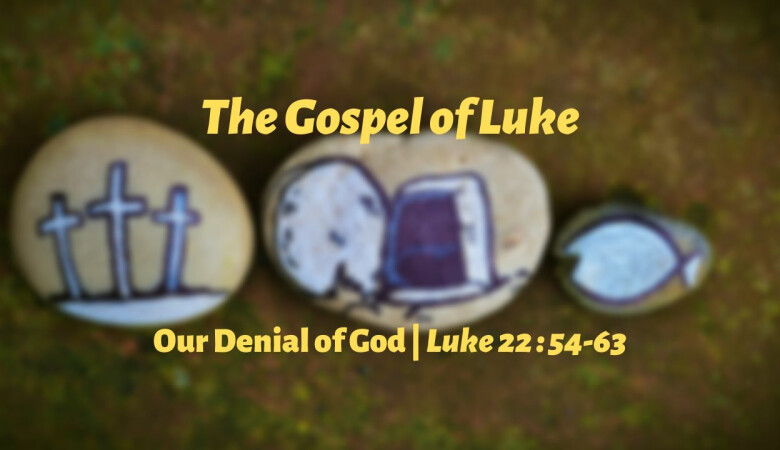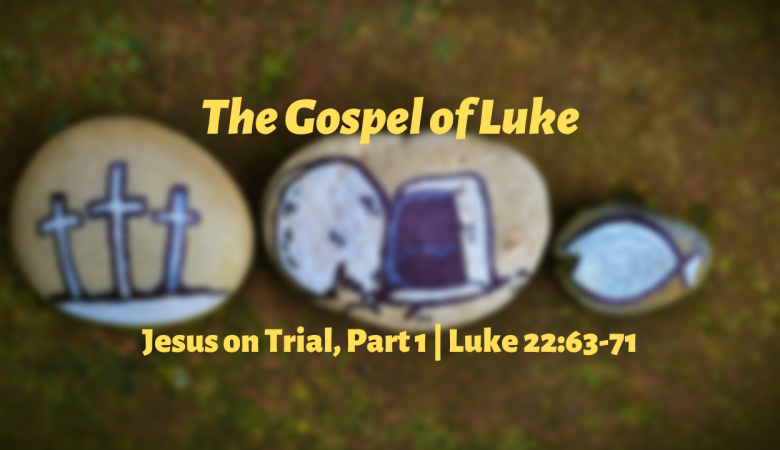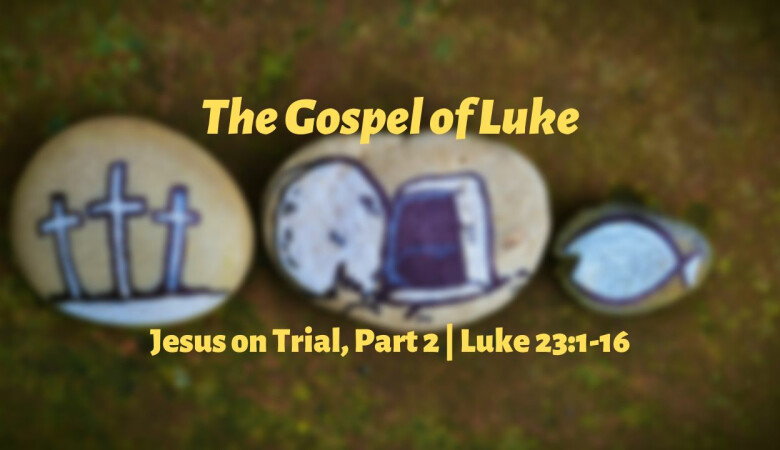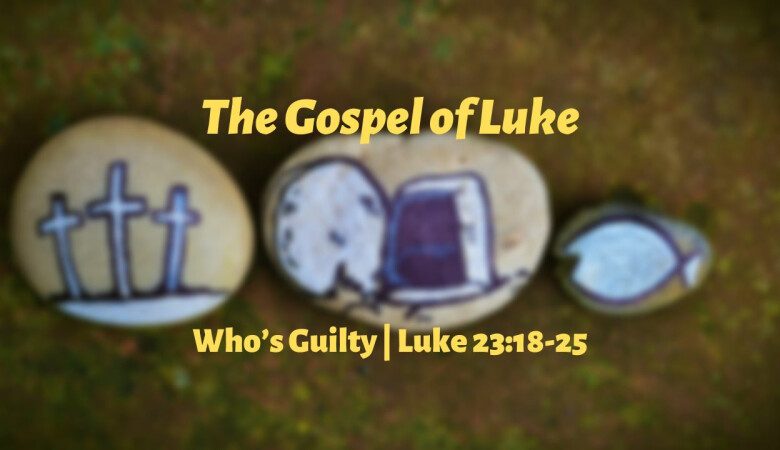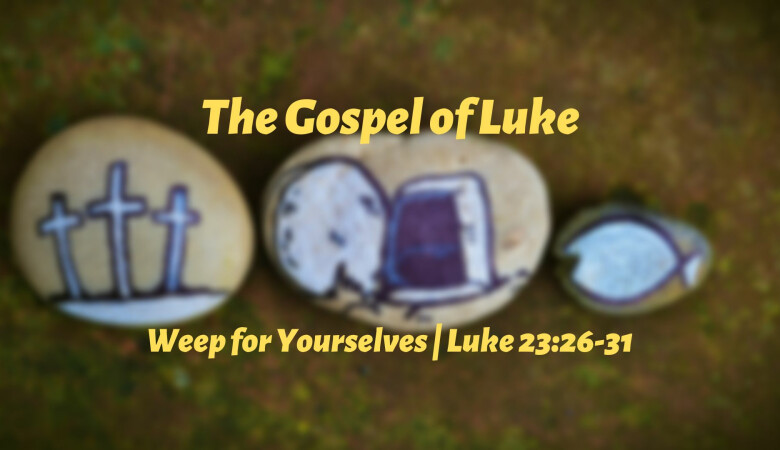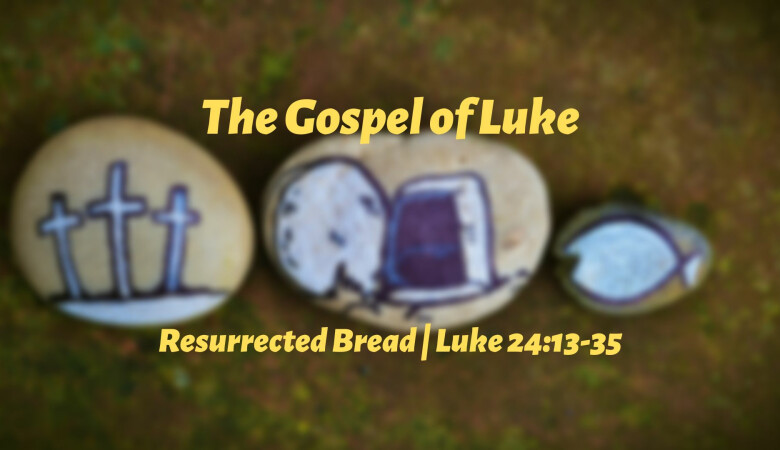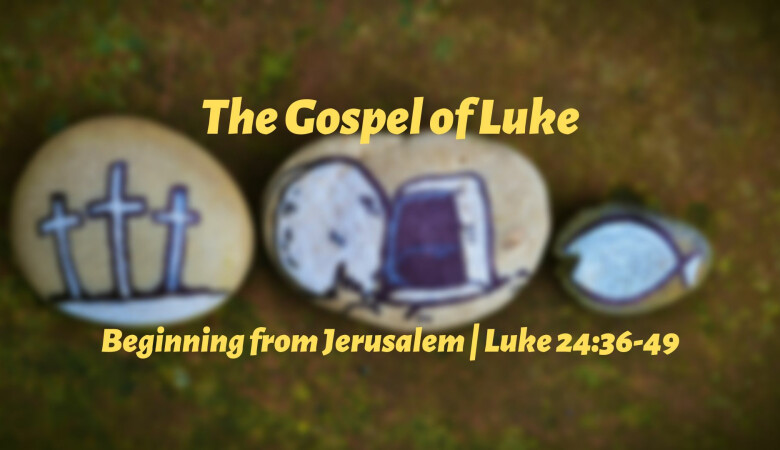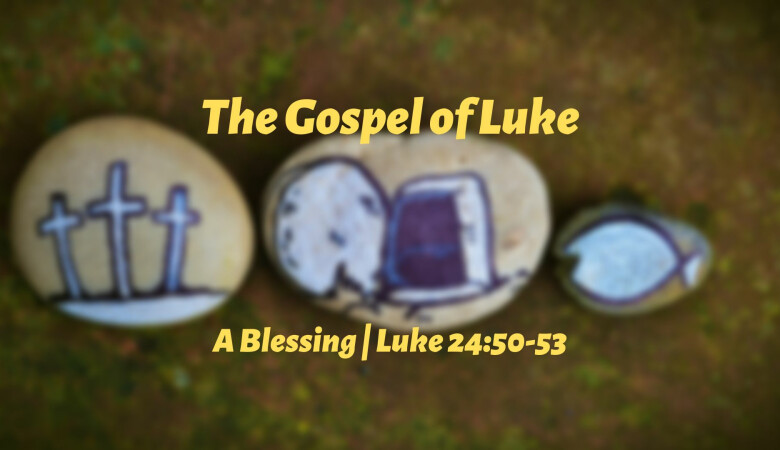Series: Luke
Resurrected Word
April 07, 2024 | Peter Rowan
Passage: Luke 24:13-53
ALL SERMONS IN SERIES
Summary
Jesus has risen. Mary Magdalene, Joanna and Mary the mother of James have encountered the empty tomb and an angel. Peter races to the tomb and finds only empty strips of cloth. What is going on here? The obvious answer has yet to manifest himself. Next in his account, Luke tells us the experience of Cleopas and his wife Mary as they walk back to Emmaus reflecting on the tragic events in Jerusalem, where they encounter a mysterious traveler....
Transcript
This morning we have one of my favorite passages in the Bible. Well, we have half of one of my favorite stories. It has suspense, sorrow, grief, humor. This is a great story. And it is only written down for us by Luke. Which always seemed strange to me. I read this week though that often the simplest explanations are the best. Like, have you ever wondered why so many Irish folk settled in Boston but not in New York? Maybe you haven’t wondered that, but it’s a good question. Well, during the height of the Irish immigration to the US during the potato famine of the 19th C. it was about $6 cheaper to stop in Boston than to go on to NYC. Luke probably asked around about stories of Jesus, as he told us he did way back in chapter 1 that he was going to compile things about Jesus and start with eyewitnesses, and Cleopas, who is in this story, probably told him about how Jesus met he and his companion on the road to Emmaus. Anyway, we are going to look together at this great resurrection story both this week and the next. And today I want us to consider Resurrected Word.
And as we think of the Resurrected Word, I want you to think about the power of words.
One of Emily Dickinson’s shortest poems is the poem “A Word is Dead”. This is how it goes:
"A word is dead
When it is said,
Some say.
I say it just
Begins to live
That day."
A word is dead
When it is said,
Some say.
I say it just
Begins to live
That day."
Think with me back to November of 1863. Months before our church here in Midtown would start, our president Abraham Lincoln was down in Gettysburg where he gave his famous Gettysburg Address. He began that short and famous speech like this:
Four score and seven years ago our fathers brought forth on this continent, a new nation, conceived in Liberty, and dedicated to the proposition that all men are created equal.
And he ended it in this way:
It is rather for us to be here dedicated to the great task remaining before us -- that from these honored dead we take increased devotion to that cause for which they gave the last full measure of devotion -- that we here highly resolve that these dead shall not have died in vain -- that this nation, under God, shall have a new birth of freedom -- and that government of the people, by the people, for the people, shall not perish from the earth.
Those words were not dead when they were said, no they were just coming to life. And one could make a good argument that they are still to this day coming to life as we collectively work towards or against the idea that all men are created equal or that the government is of the people, by the people, and for the people.
Not quite two years later, when Senator Charles Sumner was giving his eulogy to the slain Lincoln, he called the Gettysburg Address a "monumental act." He said Lincoln was mistaken that "the world will little note, nor long remember what we say here." Rather, Sumner said "The world noted at once what he said, and will never cease to remember it. The battle itself was less important than the speech."
A word is dead
When it is said,
Some say.
I say it just
Begins to live
That day."
Think with me of the scene that we have in Luke 24.
Think about this story. We have this couple walking back to their place in the town of Emmaus. Some people think this is the husband Cleopas and his wife Mary of John 19:25. Either way you can feel the slow trod of the road, the plodding of their feet. The slow sad dismay at the failure of human hopes. They’re talking of the things they had witnessed. Maybe the triumphal entry of Jesus a week earlier and their thought that he would be crowned the new ruler that very week. Maybe the trial of Jesus and how shocking it was that the people wanted a murderer let go but their teacher, the one who had healed so many people and spoke so often of the Kingdom of God, crucified. Maybe they had heard the stories of the Last Supper of Jesus and his twelve disciples, of Jesus arrest in the garden, of the money paid to one of his own disciples for the betrayal. And certainly they were talking of the crucifixion. About how someone they had seen to be so mighty at times looked so weak up there on the cross. And it was their own religious leaders who had instigated it? What kind of world were they living in? Their was so much upheaval. So many things that had happened that they would not have guessed. So many of their hopes lifted so high, only to have them brought so low. And then there was this talk of an empty tomb. Well, they had had enough. They have put all of the eggs in the same basket and it seems as though the Easter Bunny sat on that basket and crushed them all. They are talking about these things as they slowly make their way back to their home, to their everyday lives, to the grind of life. They are heading back home to a world where sickness seems rampant, where their work seems life-taking rather than life-giving, where they worry about their kids growing up in a world as it is - with rulers that crucify good men and Caesars who rule from thousands of miles away, where their friendships come and go, where people move in and move out. They are going back to life, where wars are taking place, where refugees are being broken from their families and looking for simply a place to live. They are going back to life, life like you and I know. Life where our bodies and our minds don’t seem to work, where our relationships seem to so rarely to have the kind of depth and intimacy that we long for. They are going back to this kind of life. The one that you and I know. The one where little bunnies want to run away from their moms and where the eye of Sauron seems to be creeping towards the Shire, where the White Witch slays Aslan on the Stone Table.
And in the middle of this journey, as they hang their heads low and kick the pebbles in front of them to the curbside, here comes this man who asks them what they are talking about! Who is he? It says in verse 16 that their eyes were kept from recognizing him. I imagine they are wondering if they should trust him? Should they reveal that they had put their hope in this man who was crucified? Should they bear their heart? The end of verse 17 says that they stood still looking sad. Would this stranger mock them? But he seems to not know what had happened. Of course they are astonished, but this lack of knowing allows them to open up, to let their guard down. And when they do that they retell what they had been talking about, but they also add this glimpse into their heart. They allow him to peak into their desires, to hear not just in their tone but in their very words, the story of their great hopes lost, their hopes killed. Their words expressed death.
“We had hoped that he was the one to redeem Israel”. We had hoped that the world would change. We had hoped that life as we know it might not be all there is or all there is going to be. We had hoped.
He was the one, they thought! He was the one that would redeem their situation, that would make it all better.
Does this sound at all familiar to you?
The book of Proverbs tells us that “hope deferred makes the heart sick” and I would guess that all of us know this sinking feeling of hoping for the reality of something being better than it is. Our marriages becoming fruitful. our bodies working like we would like. our work dynamics improving. Our own river here in Harrisburg not being so polluted and people caring about it. I mean really, how may hopes could we list collectively and as we give voice to them they seem to be words that bring forth death and despair and hopelessness?
Some of you, if not all of you, know that Jerusalem, this city that they are leaving, is a city that has been fought over time and time again. In fact it has been besieged 23 times, attacked 52 times, and captured and recaptured 44. I used to love making lego castles and besieging them, but that rivals most of the fortresses I made.
And the rulers at the time of Jesus were the Romans. Now the Romans hadn’t been in power that long (only about a hundred years), but Israel had other countries ruling over her for about 600 years at this point. And all along they had hoped that God would send his king to put things to rights, to make them better, to redeem their situation. And Jesus looked as though he might be it. 600 years of waiting for Israel to be reestablished in all of her glory and this Jesus was going to do it. But right when it looked so close, all was lost.
Part of what this story is telling us is of despair or a hopelessness that we experience. It’s telling us about our own times when we feel like all we can do is hang our heads low and go home. Why hang their heads low? Why walk back to Emmaus? Why stand still and look sad when asked about their conversation?
Why? Because we had hoped. We had hoped for redemption, for life abundantly. And the words we heard instead were “crucify him!”
But here is the thing: they were full of despair because they looked to Jesus to work as the world works. And as one commentator said:
The cross . . . had a symbolic meaning throughout the Roman world, long before it had a new one for the Christians, It meant: we Romans run this place, and if you get in our way we’ll obliterate you - and do it pretty nastily too. Crucifixion meant that the kingdom hadn’t come, not that it had. Crucifixion of the would-be Messiah meant that he wasn’t the Messiah, not that he was.
This passage speaks to us of the despair brought by human failure. It speaks to us of the despair that is brought by looking for our hope and our redemption in the ways of this world.
And you know what, we do the same thing all the time. We think that it is through power that redemption comes. We think of salvation by election, that if we just get our man at the elected to the highest position then our world will be right. We think of salvation by medication, that if we could just get that prescription boosted then we’ll be good. Salvation by information, that if we can just keep up with what’s going on, then we’ll be good. That’s enough -ation words. We think of salvation by being physically fit, financially set, and a whole host of other things that lean in the direction of the powerful, the strong and the beautiful, not death and especially not death on a cross.
But the turning point here in this story is when Jesus tells them that this way of thinking isn’t the way of God.
A word is dead
When it is said,
Some say.
I say it just
Begins to live
That day."
And in our day we may be tempted to think that Jesus would have said something like, “I understand how crushed and devastated you must feel.” But instead he says, “O foolish ones, and slow of heart to believe all that the prophets have spoken! 26 Was it not necessary that the Christ should suffer these things and enter into his glory?”
You miss the whole point of Scripture, if you do not see that God is going to enter in to the sadness of it all, enter in to the death of this world, enter in to the place of tears and hope lost. “Unless a grain of wheat falls into the earth and dies, it remains alone; but if it dies, it bears much fruit.”
And then he begins to give them the words of Scripture.
Maybe he began in Genesis 3:15. The seed of the woman would crush the head of the serpent, but that also his heel would be bruised.
Maybe he then went to Leviticus 16 and the great Day of Atonement ritual. One of the goats is killed and his blood is shed to cleanse the sanctuary and the other one lives. The one goes out from the people to “carry away” their sins, the other dies.
Maybe Jesus stopped at Deuteronomy 18 where Moses says that the Lord would raise up a leader like Moses. Moses was a mediator for Israel, but he was also often rejected by Israel.
Almost certainly, Jesus would have spoken to them about the servant of the Lord in Isaiah. Isaiah 53 - Surely he has borne our griefs and carried our sorrows; yet we esteemed him stricken, smitten by God, and afflicted. But he was pierced for our transgressions; he was crushed for our iniquities; upon him was the chastisement that brought us peace, and with his wounds we are healed. All we like sheep have gone astray; we have turned—every one—to his own way; and the Lord has laid on him the iniquity of us all.
Maybe he talked about Zechariah 12. And I will pour out on the house of David and the inhabitants of Jerusalem a spirit of grace and pleas for mercy, so that, when they look on me, on him whom they have pierced, they shall mourn for him, as one mourns for an only child, and weep bitterly over him, as one weeps over a firstborn.
Friends, what Jesus undoubtedly said was the that Christ must suffer. And in saying that he was saying that the Christ knows all of your pain, that he went willingly to the place of our greatest sorrow and it is only because of that that we our hope is not lost. The greatest Bible study ever was a study in how God would die and because he would die we have a resurrection hope.
God’s words in Scripture bring life.
And God said, “Let their be light” and there was light.
In the beginning was the Word, and the Word was with God, and the Word was God.
"A word is dead
When it is said,
Some say.
I say it just
Begins to live
That day."
Series Information
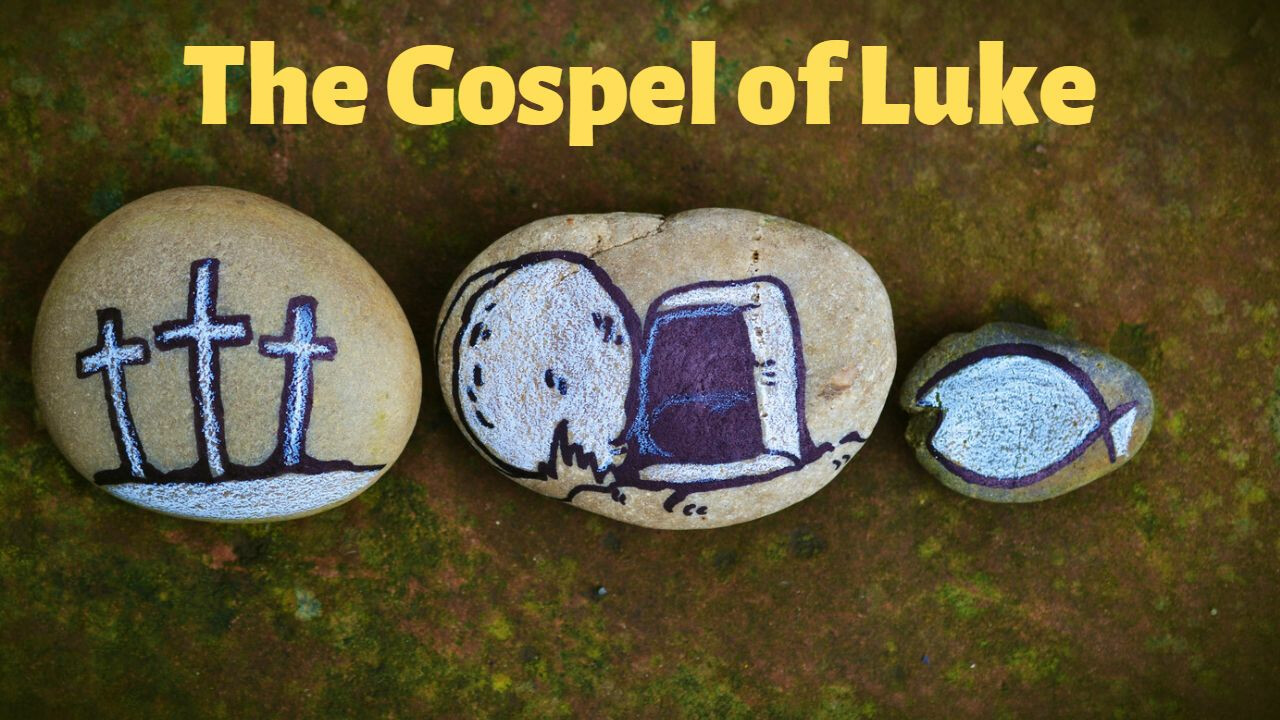
The Gospel of Luke is best described by its author in the first four verses of the book: "Many have undertaken to draw up an account of the things that have been fulfilled among us, just as they were handed down to us by those who from the first were eyewitnesses and servants of the word. With this in mind, since I myself have carefully investigated everything from the beginning, I too decided to write an orderly account for you, most excellent Theophilus, so that you may know the certainty of the things you have been taught."


